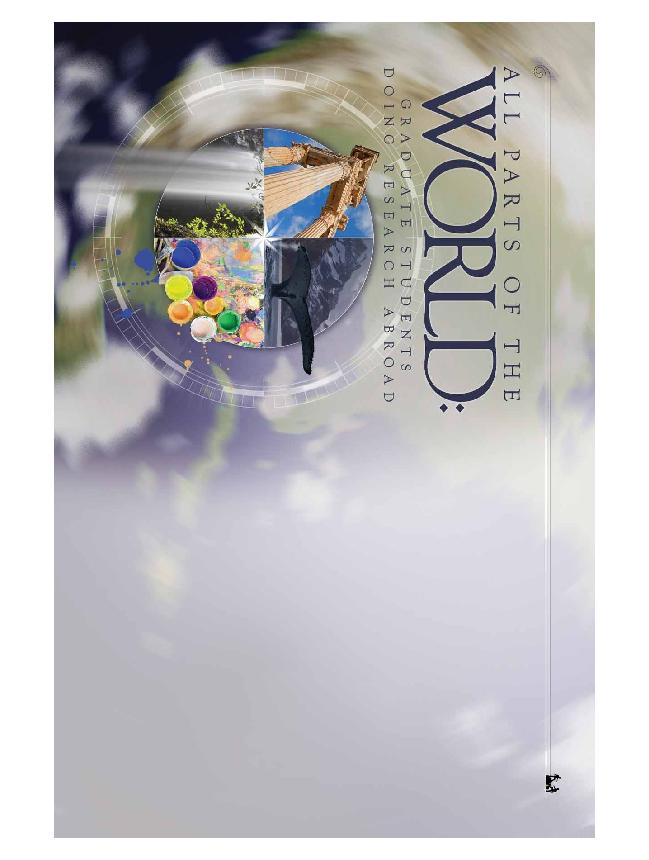
research has definitely enriched my time here at Washington
University," says Heeszel, who will finish his dissertation in fall
2010. "The guarantee my advisor made me prior to attending
Washington University is one of the major reasons that I chose
this program over those at other universities."
the beginning. In other graduate programs -- history, anthropology,
art history and archaeology, music, economics, chemistry and a
range of languages -- students are conducting research overseas.
While some choose familiar places, others are off to more remote
spots, such as Madagascar, Kenya, Sri Lanka or Syria.
Ph.D. students arriving each year are international students, and our
enrolled students are conducting research all around the globe," says
Richard J. Smith, dean of the Graduate School of Arts & Sciences. "The
exchange of knowledge, experience, and cultures enriches our campus."
history graduate student John Aerni-Flessner spent 10 months in
the African country of Lesotho, where he conducted interviews to
gather more information about nationalism during the 1950s and
1960s. At that time, young people were challenging the status quo
through their involvement in youth groups.
and ended up doing an hour-and-a-half interview with the man
in a bus station, where we were both standing in line."
into his topic: sacred spaces in Late Antique Asia Minor. In partic-
ular, he hopes to define the factors that contributed to the creation,
destruction and then re-use of holy buildings in regional centers
like Ephesus, as Christianity gained ascendancy over paganism.
possible some interesting interactions. Shortly after Kurdistan
gained more autonomy following the second Iraq war, they were
sitting in a small Istanbul restaurant, in which the only other table
was occupied by Kurds. Soon they all got together, exchanging
unforgettable stories and impressions.
a Ph.D. student in anthropology, is examining the resistance
movement among Uzbek dissidents forced to flee after a 2005
massacre. Now they live in countries around the world, unable to
return to Uzbekistan; they rely on the Internet to keep in touch
with each other and also with Kendzior, as she does her research.
When Amanda Lough travels to Antarctica, for example, she
flies first to New Zealand, then boards a military C-17 cargo jet to
get to her icy destination. So if crucial equipment goes missing,
scrap materials we scavenged around McMurdo Station," she says.
with a sharp point -- and it promptly disappeared. Poking gingerly
into the powdery snow, which might hide a dangerous crevasse,
the team's mountaineer eventually found the upper tip of the tool --
a full two feet below the surface.
historians, the opportunity to engage in research travel allows us to
establish a physical context for the art, objects and buildings we
study," he says. "We can much better understand the original intent
if we experience the environment in which a work of art was created."
University graduate students go to the ends of
the earth to do research. Just ask Amanda Lough
and David Heeszel, both Ph.D. candidates in
the Department of Earth and Planetary Sciences
(EPS), who have traveled to Antarctica on separate
projects.He is using surface waves from distant
earthquakes to calculate the age of a mountain
range, completely buried by ice. She is studying
the twice-daily movement of the Whillans
Ice Stream, using seismological techniques.